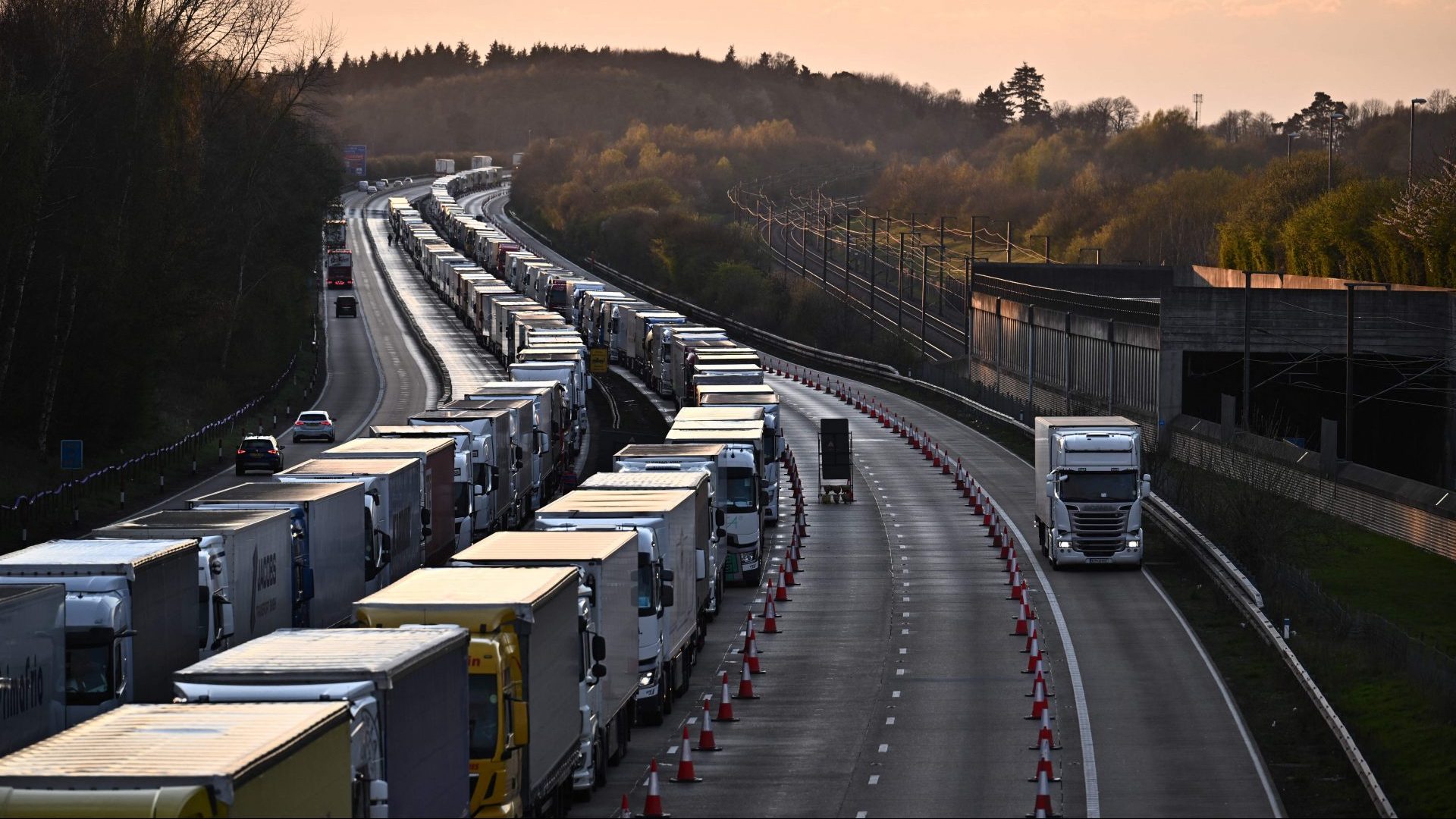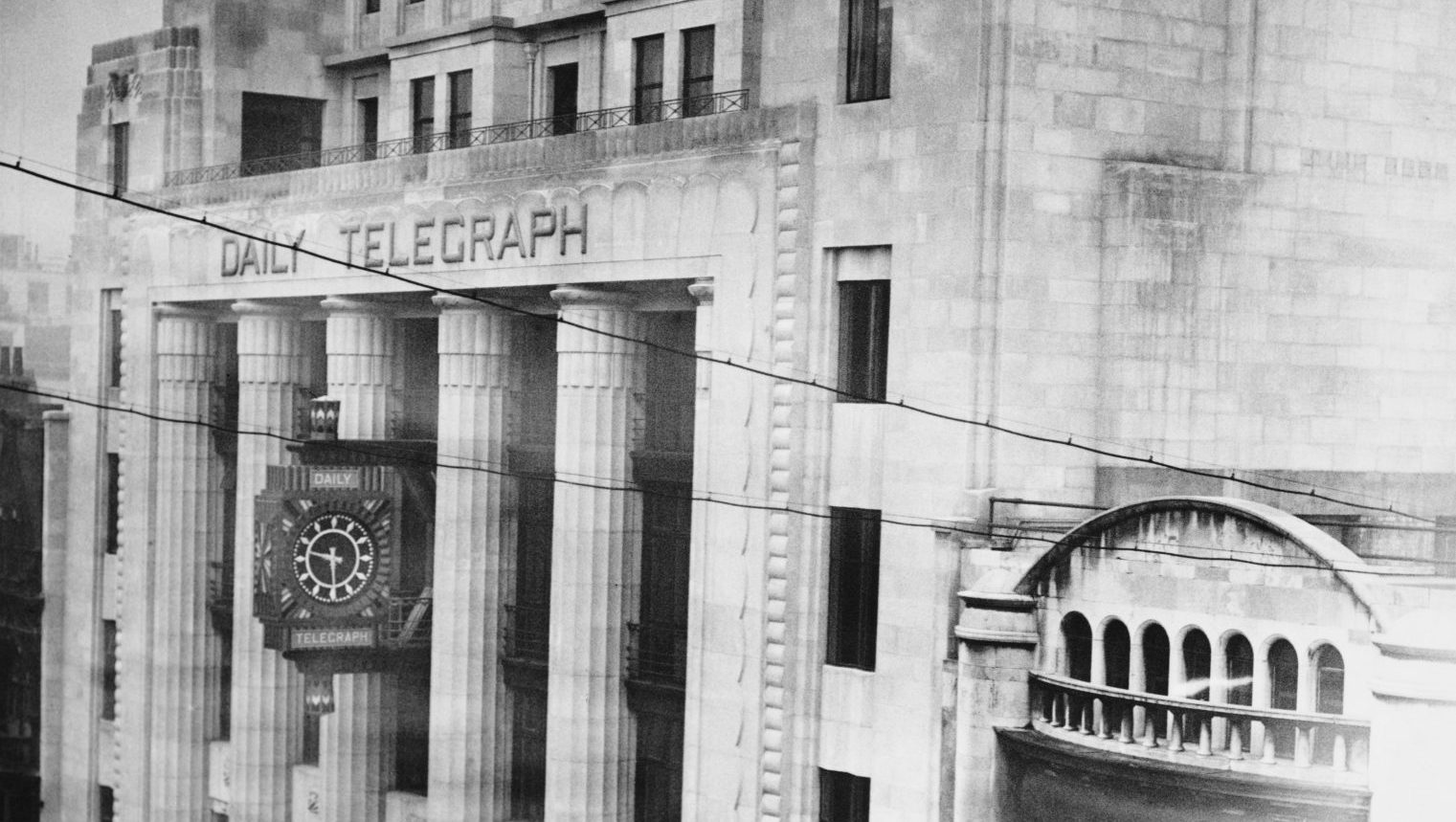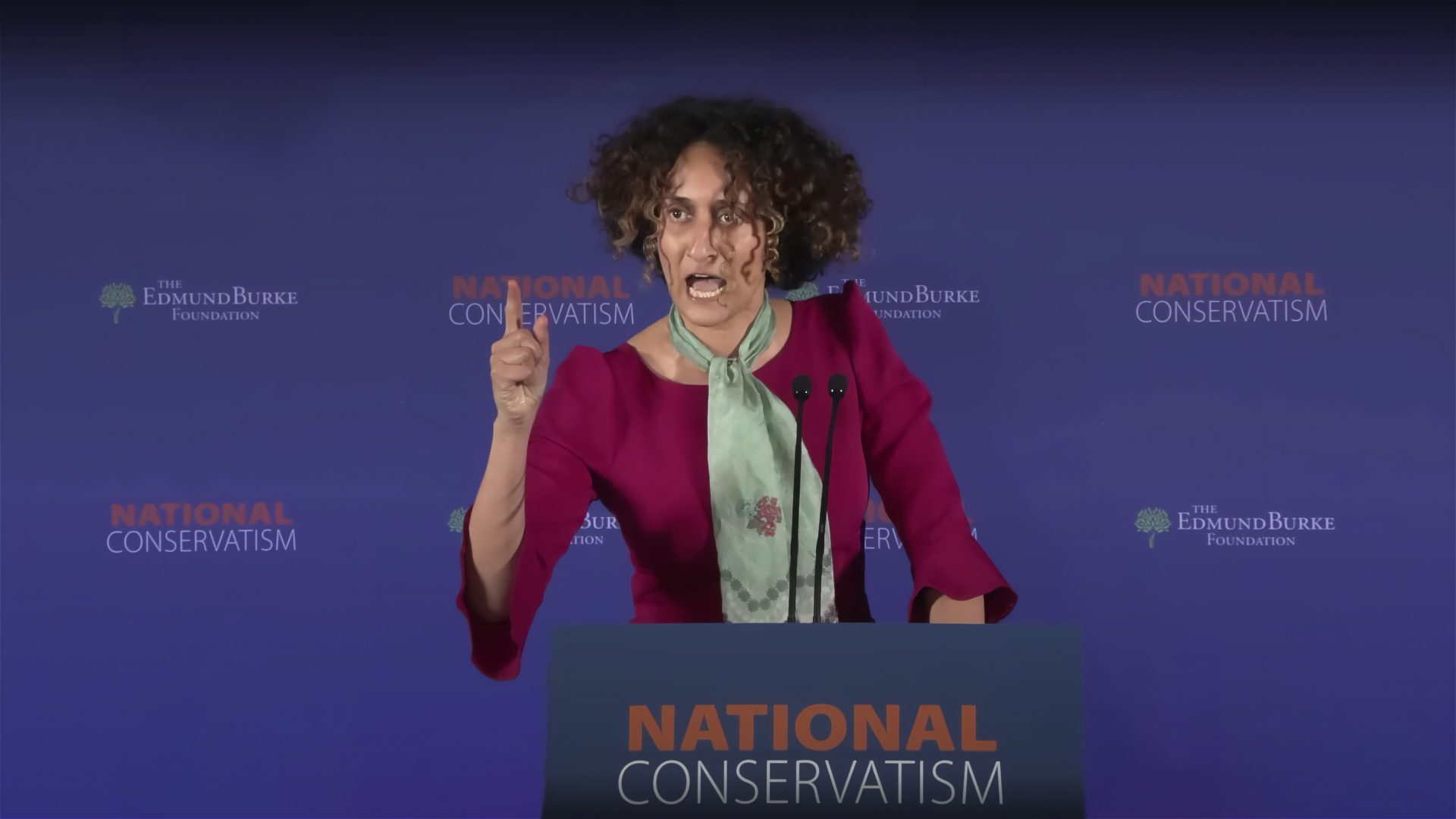Dr Adam Posen is one of the heroes of Brexit. His speeches and interviews on TV – available on YouTube – offer a clear, precise explanation of why Brexit is such a mess and why it matters so much. As head of the hugely influential Peterson Institute, the Washington economic thinktank, and a former member of the Bank of England’s monetary policy committee, he knows what he is talking about.
Posen famously described Brexit as the only time in history when a country has declared a trade war on itself, and his opinion has not changed. “It’s actually getting worse… these self-harms,” he says. “Taking the trade war on oneself, and now expanding it to an immigration war on oneself, a fiscal war on oneself, an investment war on oneself. These mistakes are going to have longer-lasting effects and cause more reputational harm for the UK now than they would have a few years ago. They’re more costly.”
Liz Truss and Kwasi Kwarteng undermined Britain’s fiscal reputation, and now Rishi Sunak cannot see that the country needs more, not less, immigration, as he seems to make decisions not out of pragmatism but in hock to populism.
Posen can see from Washington what the current political circus is doing to the reputation of the UK. “There have been real governance issues in the UK: that you’ve had five prime ministers and five governments essentially in seven years. That’s Italy-like territory. Not quite Argentina, but Italy-type territory.”
And in the UK an Italian-style government, as Posen sees it, comes with its own special kind of policy flip-flops. “Of course, Truss and Kwarteng were the extreme, but we’ve had a number of volatile and irresponsible economic policies coming on top of the mistakes of excessive austerity. And so to me this, combined with Brexit and the underlying productivity problem, have eroded what economists call the credibility of the macroeconomic regime, which means average people and investors both have less faith in the government’s ability to deliver stability or stay in a policy without U-turning. And so the exchange rate and, more importantly, government bonds’ interest rates are more volatile and more vulnerable to downshifts if there’s a shock or a policy mistake.”
It has all added to the costs of Brexit, which Posen has no doubt are worse than the optimists predicted. “I tend to be at the high end of estimates of the cost of Brexit among mainstream people. So I put it closer to 4-5% of GDP, rather than 2-3% in terms of direct costs. But I also think it has made inflation worse by creating shortages, by creating red tape from having… administrative costs and supply chains move around.”
Posen has also turned his mind to how the UK can reverse or at least minimise the Brexit damage.
“It starts with thinking the United Kingdom economy is now a small economy, not a huge first-tier economy. It is sixth or seventh or eighth in the world, depending on the exchange rate, but it’s not China, the US or Europe. So you need to change your mentality. And this parallels some discussion of getting away from nostalgia or imperial thinking in foreign policy and anti-European policy.”
We are, it seems, going to have to recognise we are no longer a world leader or even part of a world-beating group. Posen has little time for delusions of grandeur – the UK is a relatively small economy and has to start acting like one.
Posen asks: “So what does that mean? First is you have to be more straight and narrow on your macro policies, not austerity, not self-destructive austerity, but you have to be more cautious – not to be like Truss and Kwarteng, not promising to spend crazy amounts, because you’ve got less room for error. The markets will punish you.
“Second, you have to think in terms of structural reform. We, the UK, are world class in business services… we can attract all the world’s best students. We should be exporting those business services, those educational places, those cultural goods, lean into that, not waste money trying to be an industrial heavy-hitter.
“Third, going back to… austerity and public investment, the UK is at worst an emerging market. It’s not a developing country. It’s not a ruined country. You know, there is room to do public investment. The UK needs to prioritise the NHS, public transport, the power grid, water. [It has] to do better on nutrition for poor kids. There are basic things that everybody recognises need doing.”
Those basic things include paying nurses, doctors and teachers more. The government trying to use inflation as an excuse to squeeze them further does not convince Posen.
The problem is that the UK is currently sailing in exactly the opposite direction, driven on by an urge to be a player on the world stage. Meanwhile the NHS is crumbling, education and training are underfunded, Thames Water is a basket case, the energy crisis hit the UK harder than most, and children are going hungry. “It’s actually getting worse,” Posen says.
There is, of course, an elephant in the room – an obvious answer to many of these problems. “You’ve got to de facto move to a much softer Brexit as quickly as possible on a unilateral basis, you’ve got to start looking more like Norway and Switzerland, for the sake of the British people and the British economy,” he says. That means not seeking to distance the UK economy from EU standards on food and agricultural products, keeping the CE mark and not creating our own, abiding by EU chemical safety rules and a dozen other things.
“Once you’re actually doing that, it will have real near-term effects, it will not require negotiations with the EU to implement, and will alleviate some of the investment and business planning uncertainty because you’re saying, we’re not going to diverge in this industry or that industry or that regulation. Then you can start talking about re-joining, not from a political sense, but from the economic point of view, unilaterally moving as fast as possible to maintain regulatory single market-type alignment, be more like a European Free Trade Agreement country. That’s the best thing you can do… move towards (being like) Switzerland or Norway.”
This might seem like common sense, but we live in a country where a significant part of the government thinks such talk is treason. What Posen has to say hurts – but it’s the truth.
We are not a world power, we are heading in the wrong direction and we need to reform, invest and improve productivity urgently. To do that, we need to be closer to the EU. And, most importantly, to stop the government’s war on its own country.
Until we do, things can only get worse.




